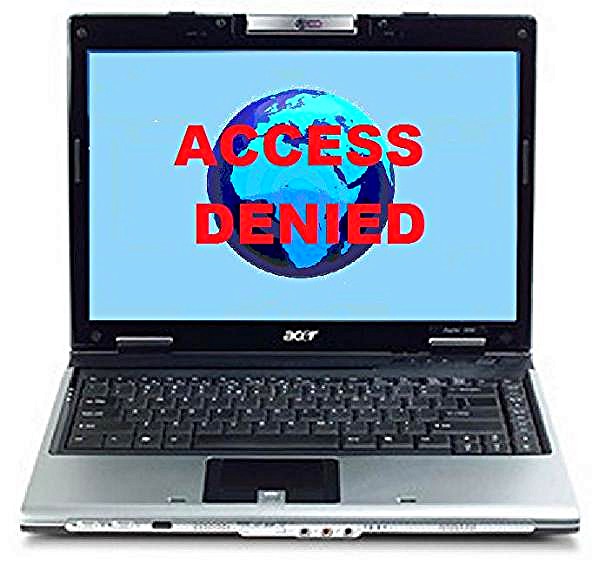This article is written by Mayura Shetty, pursuing a Certificate Course in Media and Entertainment Law: Contracts, Licensing and Regulations from LawSikho.com. Here she discusses “Internet Shutdowns and the Temporary Suspension of Telecom Services (Public Emergency or Public Safety) Rules, 2017”.

Introduction
An internet shutdown is an intentional shutting down of internet services or electronic communication by the government. This is done within a specific location to control the flow of communication and to prevent people from spreading messages that may incite violence.
Internet shutdowns have become a very common phenomenon in our country over the past few years. India has witnessed the highest number of internet shutdowns as compared to any other country in the world. In 2019, India has had 81 shutdowns so far, out of which 55 were in the Union Territory of Jammu & Kashmir alone. When tallied from 2012, the number of shutdowns goes up to a stunning 354. These alarming numbers make one wonder where the government derives the authority to order these shutdowns from and whether there are legal safeguards in place to protect the fundamental rights of the citizens. Earlier, internet shutdowns were ordered under the authority of Section 144 of the Code of Criminal Procedure, 1973. Section 144 authorises a District Magistrate or an Executive Magistrate empowered by the State Government to pass orders as are deemed necessary for public safety and public tranquillity. This section is used most frequently to curb unlawful assemblies but has also been widely used to order internet shutdowns.
A legal framework to govern internet shutdowns was created for the first time in the year 2017 with the intention of directing how such shutdowns may be ordered. Rules were issued for this purpose by the government and these Rules are called the Temporary Suspension of Telecom Services (Public Emergency or Public Safety) Rules, 2017 (hereinafter referred to as “the Rules”). They provide for the manner in which directions to suspend telecom services are to be issued. These Rules were issued under the Indian Telegraph Act, 1885. However, there is no definition of “telecom services” in the Rules or the Telegraph Act, 1885. A broad definition has been provided in the Telecom Regulatory Authority of India (TRAI) Act of 1997, which has defined it to include all telephonic services.
Who can issue an order for an internet shutdown?
In the case of the Government of India, an order for suspension of telecom services can be issued by the Secretary to the Government of India in the Ministry of Home Affairs and in case of a State Government, such order can be issued by the Secretary to the State Government in-charge of the Home Department (hereinafter referred to as “the competent authority”). The Rules mention that every such order must contain reasons for the issuance of such directions.
In situations of “unavoidable circumstances”, such an order can be issued by an officer of the rank of a Joint Secretary to the Government of India or above, who has been authorised to issue such order by the Union Home Secretary or the State Home Secretary as the case may be. However, such an order will have to be confirmed by the respective competent authority as mentioned above within a period of 24 hours. If such confirmation is not received, the order will cease to exist after 24 hours.
Is the order reviewed?
Yes, every order for suspension of telecom services is reviewed by a Review Committee. The competent authority has to forward a copy of the order to the Committee by the next working day.
The Review Committee consists of the following persons:
- When it is constituted by the Central Government: The Cabinet Secretary (who shall be the Chairman), the Secretary to the Government of India In-charge, Legal Affairs and the Secretary to the Government, Department of Telecommunications.
- When it is constituted by the State Government: The Chief Secretary (who shall be the Chairman), the Secretary Law or Legal Remembrancer In-Charge, Legal Affairs and the Secretary to the State Government (other than the Home Secretary).
The Review Committee has to meet within 5 working days of the issue of the order and it has to record its findings as to whether the order has been issued in accordance with the provisions of Section 5(2) of the Telegraph Act. However, the Rules are silent as to what steps are to be taken if the Review Committee finds that the order was not issued validly. No power has been given to the Committee to strike down the order.
It is also important to note that the Review Committee is composed entirely of members of the Executive. This appears to be a conflict of interest as the competent authority and the members of the Review Committee are all part of the Executive and it brings up questions about the impartiality of the review process. The Committee should have, ideally, consisted of members of the Judiciary.
In what situations can such an order for suspension of telecom services be made?
The Rules do not provide for the grounds under which a shutdown can be ordered. It merely states that such an order can be issued in cases of “public emergency” or “public safety”, but no definition has been provided of what constitutes a public emergency or what is public safety.
However, if we read the Rules in conjunction with the Telegraph Act, the situations in which telecom services may be suspended are as follows – a) on the occurrence of any public emergency, or b) in the interest of public safety where it is necessary, or c) expedient to do so in the interests of the sovereignty and integrity of India, the security of the State, friendly relations with foreign states or public order or, d) for preventing incitement to the commission of an offence.
These grounds should be given a strict interpretation and should be taken to mean that such an order should be issued only when there is a grave danger to public order. The Rules should have also included a list of situations in which such suspension of telecom services should not be ordered, such as when internet services were suspended over the fear of widespread cheating in a particular exam.
How will the order be conveyed to the service provider?
The service provider (telecom authority or internet service provider) must have a designated officer in every licensed service area or State or Union Territory who shall receive and handle all such orders. The order for suspension shall be communicated to such designated officer in writing or by secure electronic communication and it shall be sent by an officer “not below the rank of Superintendent of Police or equivalent rank”.
Has a timeline been specified in the Rules for such suspension of telecom services?
No, a timeline hasn’t been laid down for such suspension and this is one of the major drawbacks in these Rules. A maximum time period should have been provided beyond which shutdown should not be allowed to continue. This would have gone a long way in upholding the rights of citizens and in ensuring that citizens are not deprived of internet services for an inordinately long time. However, since no such time limit has been provided, governments are free to order suspensions for an indefinite period of time. This is a worrisome situation given that governments are wont to order shutdowns when there is even a slight possibility of a law and order problem.
Conclusion
A plain reading of the Rules shows that adequate legal safeguards have not been put in place to ensure that an order to suspend internet services is issued only in dire circumstances. For the rules to be completely effective, strict limitations should have been provided regarding the grounds under which a shutdown can be ordered. Also, as mentioned above, a maximum time limit should have been provided for the continuance of such suspension.
In today’s day and age, access to the internet is considered as a fundamental right. The internet is used by citizens to exercise their right to free speech and expression. Being one of the most important rights available to citizens in a democracy, it should be taken away only in the most adverse situations, where is no other recourse. Also, it is important to note that the internet is also used for various activities such as e-commerce, banking transactions, streaming of media and numerous other functions that are intrinsic to day-to-day life, especially in urban areas. In such a case, taking away access to the internet can seriously hamper the commercial prospects of innocent people, while causing a huge loss to the economy of the country at the same time. Research has shown that the internet shutdowns from 2012 to 2017 cost the Indian economy nearly 3 billion dollars. That is a huge number for a developing country.
While maintaining law and order and protecting human life should be the priority for every government, care should be taken that this does not infringe on the fundamental rights of the citizens for an extended period of time. Another important point is that the Rules do not contain a provision for issuing a notification prior to shutting down of internet services. As a result, citizens are caught unawares and do not have the time to make preparations to reduce the impact of the shutdown.
Checks and balances are the need of the hour. A blanket internet shutdown creates uncertainty among the public and may also cause widespread panic. Alternate solutions must be devised such as ways to prevent the circulation of any inflammatory material online. Exceptions should also be made for members of the press residing in areas where a shutdown has been ordered. It is important that news about the prevalent conditions in such areas is made available to the public at large. This can also go a long way in quelling any unrest among citizens.
To conclude, these Rules must be looked into by the government and the necessary changes must be made to give more teeth to these Rules. India must make sure that the democratic ideals of the country are maintained and the fundamental rights of citizens are upheld to the highest possible degree.
Endnotes
- Internet shutdowns. (n.d.). Retrieved from https://internetshutdowns.in/
- Telecom Regulatory Authority of India Act 1997, s. 2(k)
- Temporary Suspension of Telecom Services (Public Emergency or Public Safety) Rules, 2017, r. 2(1)
- Temporary Suspension of Telecom Services (Public Emergency or Public Safety) Rules, 2017, r. 2(1)
- Temporary Suspension of Telecom Services (Public Emergency or Public Safety) Rules, 2017, r. 2(2)
- Temporary Suspension of Telecom Services (Public Emergency or Public Safety) Rules, 2017, r. 2(5)
- Temporary Suspension of Telecom Services (Public Emergency or Public Safety) Rules, 2017, r. 2(6)
- Indian Telegraph Act 1885, s. 5(2)
- Temporary Suspension of Telecom Services (Public Emergency or Public Safety) Rules, 2017, r. 2(4)
- Temporary Suspension of Telecom Services (Public Emergency or Public Safety) Rules, 2017, r. 2(3)
- Mishra, S. (2019, August 10). Internet Shutdown Between 2012-17 Cost Indian Economy $3.04 Bn, Shows Research. Retrieved from https://www.outlookindia.com/website/story/india-news-data-show-internet-shutdown-in-jk-between-2012-17-cost-indian-economy-304-bn/335965
Students of Lawsikho courses regularly produce writing assignments and work on practical exercises as a part of their coursework and develop themselves in real-life practical skill.
https://t.me/joinchat/J_0YrBa4IBSHdpuTfQO_sA
Follow us on Instagram and subscribe to our YouTube channel for more amazing legal content.
 Serato DJ Crack 2025Serato DJ PRO Crack
Serato DJ Crack 2025Serato DJ PRO Crack










 Allow notifications
Allow notifications


